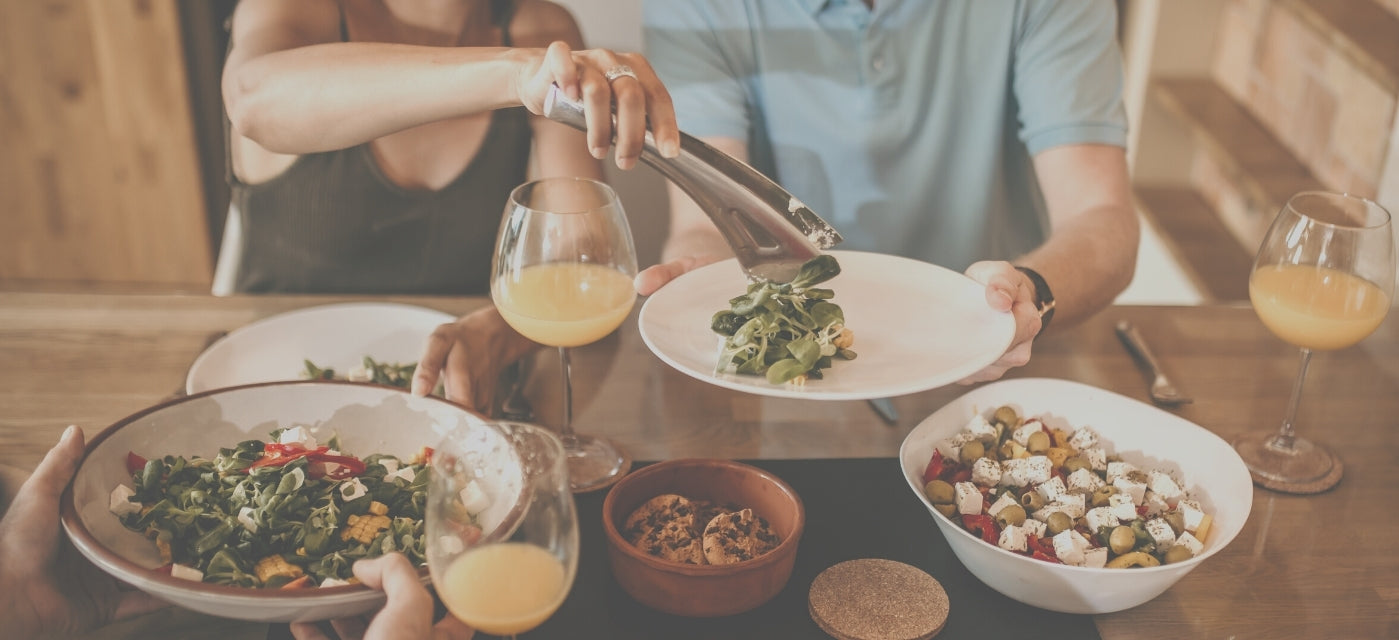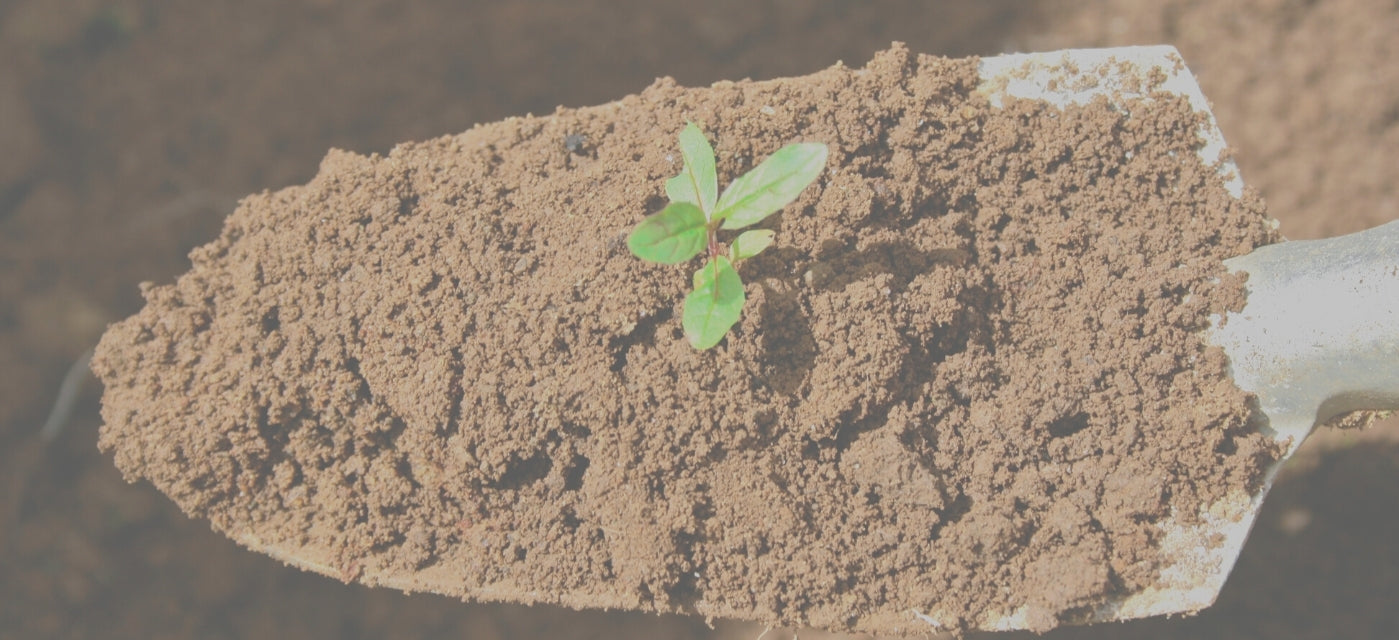
How To Get Enough Protein As a Vegan
How To Get Enough Protein As a Vegan
If you’ve ever thought about trying a vegan diet, there might be one burning question in your mind: how will you get enough protein?
It’s a simple fact that meat and dairy offer a MUCH higher concentration of protein per gram than almost any plant. For instance, a serving size of chicken offers 31 grams of protein, while a serving size of black eyed peas only offers 13 grams of protein. A serving of steak offers 24 grams of protein, but a serving of potatoes only provides 5 [1].
Knowing this, you may come to the conclusion that a vegan diet just won’t provide you with enough protein to remain healthy.

Well, think again. Not only can a plant based diet provide all the protein you need, the many supplements on the market make it easier than ever to eat meat and dairy free, stay strong and lean, and enjoy your vegan diet.
So, let’s talk about what protein is, why your body needs it, and the steps you can take to make sure your vegan diet offers enough.
What is Protein?
You eat it every day, you know it’s important, and you’ve heard about all those powerlifters at the gym talk about those massive gains when they bulk on all that rice and chicken.
But scientifically speaking, what is protein? According to Mark Lefers at the Holmgren Lab at Northwestern University, here’s a comprehensive definition:
“A large molecule composed of one or more chains of amino acids in a specific order; the order is determined by the base sequence of nucleotides in the gene that codes for the protein. Proteins are required for the structure, function, and regulation of the body's cells, tissues, and organs; and each protein has unique functions. Examples are hormones, enzymes, and antibodies.[2]”
So basically, proteins are made of amino acids, put together in a lot of ways, to build molecules all over your body. They function to help your immune system, build muscle, support your testosterone and estrogen, and well, basically help almost everywhere all the time.
Yes, protein is just that important. And while your body does produce some amino acids on its own, others have to be put into your body through food.
We call these essential amino acids. There are nine essential amino acids that must be introduced through diet. Histidine is the only one we (arguably) cannot live without.
Protein Every Day
If protein is an important part of your diet every day, then it is essential to your health to get enough. Most resources on the subject say that most people need about 12% -15% of their calories[3] to come from protein and the rest from carbohydrates and fats. Or, another way of calculating this is with the equation:
# pounds of body weight x 0.36 = # of grams of protein / day[4}
So, for 150 lb. person, they would need 54 grams of protein each day. And while this doesn’t apply perfectly to everyone, if you are meeting or exceeding this standard, you’re probably in good shape.
However, there is also evidence that an even HIGHER amount of daily protein can have positive effects. Here are some just to name a few:

- Studies have shown that high protein diets can reduce the risk of non-alcoholic fatty liver disease[5].
- Even VERY high amounts of protein for athletes do not pose a threat to otherwise healthy people while helping build muscle for competition[6].
- High protein diets can be helpful for heart health for those losing body fat[7].
- There is also convincing evidence that higher protein diets help with saity[8], meaning that the more protein you eat, the less likely you’ll want to snack on other food.
So do we all need to go above and beyond with protein like olympic athletes? Not really. Our bodies do a great job wit h a slight surplus of protein every day from a variety of different sources[9].
So when thinking through the examples given, that same 150lb person who has a serving of black-eyed peas and potatoes at lunch already has 18g of protein. And since they need 54 grams for the whole day, that means that one wholesome meal got them more than 30% of the way. And if they stay on track with two more vegan meals and snacks, this vegan’s diet can have all the protein they will need with zero animal products!
Protein on a Vegan Diet
And that’s great news for vegans! While you may be eating less protein than our carnivorous friends in a single serving, eating plants rich in protein can still help you reach your daily goal.
Here are a few recommendations to keep in mind to make sure your earth-friendly, plant based diet has enough protein.
Talk to Your Doctor and/or a Dietician
Every person and every body is different, from our DNA, to our daily habits. Some of us even need a specific micronutrient more than most people, such as iron or vitamin D. So even the best recommendations online or from a friend can still fall short of taking care of you on a vegan diet.
Always start by talking to the experts. With the right guidance, you’ll save yourself so much time trying and failing to figure it out on your own. And when it comes to your daily nutrients, there’s no time to lose making sure that you get everything you need today.
Your vegan diet should be fun, wholesome, and rewarding. And there’s no reason it shouldn’t also be safe! Let the medical professionals help from the start and you’ll be on track from the get-go.
Use a Calorie Counter
Once you’ve spoken with your doctor, start tracking your daily protein intake. You may think you have a good grasp on the protein, fat, and carbohydrates you eat every day, but you may be very surprised once you take stock of every single thing you eat.
This is where a calorie counter comes in handy. Today, there are plenty of apps with free calorie counters that also track your daily macronutrients, some even have databases of nutritional information on different foods to save you the time of looking up all the details in a search engine. And while this may not be the perfectly precise method a researcher would use in a lab, it will give you an estimate on how you’re already doing.
Things like quality, serving size, and brand of food all make small differences in your daily protein intake. And until you add them all up for yourself, there’s just no way to know how you’re doing.
Skip the Carry-Out

This one helps in a lot of ways, from ensuring that animal products don’t slip into your meals and keeping processed foods to a minimum.
When you do the shopping, cooking, and serving yourself, you have all the security of knowing what goes into your food AND the power to diversify your options for plant based protein. If you’re not a cook, start simple! The folks over at simpleveganblog.com do a great job of explaining the fun and easy ways to eat vegan at home.
Once you try cooking vegan, we’re sure you’ll love it. But what should you cook? Start with…
High-Protein Vegan Foods
While there are plenty of delicious whole foods to choose from, there are some plants that offer way more protein than most. Here are some that pack the biggest punch per serving:
- Soy
- Quinoa
- Lentils
- Whole grains
- Hemp
- Nuts
- Spirulina
- Mycoprotein
Some of these you’ve certainly tried before, but others may be new to you. Explore them all to broaden your diet and diversify your protein.
And last but not least…
High-Protein Vegan Supplements
While whole foods are the best place to start, there are some fabulous vegan protein supplements on the market that are clean and nutritious.

For instance, check out our Peanut Butter Hemp Protein Bars! With only 200 calories per serving, this organic bar boasts 15 grams of protein per bar, making it a tasty way to bump up that protein and stay healthy, earth-friendly, and vegan.
Resources:
[1]: https://www.ars.usda.gov/is/np/NutritiveValueofFoods/NutritiveValueofFoods.pdf
[2]: https://groups.molbiosci.northwestern.edu/holmgren/Glossary/Definitions/Def-P/protein.html
[3]: https://pubmed.ncbi.nlm.nih.gov/15212752/
[4]: https://ods.od.nih.gov/HealthInformation/Dietary_Reference_Intakes.aspx
[5]: https://pubmed.ncbi.nlm.nih.gov/32652799
[6]: https://pubmed.ncbi.nlm.nih.gov/21375795/
[7]: https://pubmed.ncbi.nlm.nih.gov/15480538/



Leave a comment
This site is protected by hCaptcha and the hCaptcha Privacy Policy and Terms of Service apply.